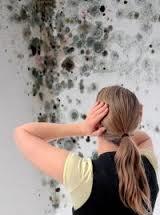Importance of Damp Proofing your Home

Having damp in your home is one of the most uncomfortable experiences. Everyone wants a home that is filled with fresh air to bring about comfort in the home. Dampness in the home may be caused by many things such as poor circulation and lack of proper outlet of water in the home. You need to consult local damp specialists to dry your home. If you don’t allow water to dry in the home, you are likely to experience dampness at some point. You will first notice the signs of dampness from the smell in your home, but you are also likely to see the growth of mold on the walls and floor of the house.
Advantages of damp proofing your home
Enhance air quality
If you want to enhance the air quality in your home, then you need to damp proof your home. When your home is exposed to damp, it becomes impossible for fresh air to circulate in the home.
The need for fresh air can never be underestimated especially if you have young kids, the sick and the elderly. Fresh air boosts the comfort of your home, and you enjoy living in an atmosphere that has fresh air.
Prevent growth of bacteria
Dampness in the home leads to the growth of mold and bacteria in the home. When the house remains damp for an extended period of time, you will notice that mold starts growing on the walls and floor.
Mold is a lead cause of bacteria, and this bacteria is likely to spread to food and also the skin causing diseases and illness. By damp proofing your home, you can be sure that mold can never grow in your home.
Prevent respir atory allergies
atory allergies
Respiratory allergies like sneezing, coughing and a running nose can be caused by dampness in the home. Some of the allergic triggers are caused by mold or accumulation of water and moisture in the home for a long period. There are people who are sensitive to smell, and immediately they smell mold; the allergy is triggered respiratory complications.
Maintain home quality
This may come as surprising to many people, but dampness and moisture have a great effect on the quality of the home. Moisture in the home is usually retained on the walls and floor.
If this is not addressed at the right time, it is likely to compromise the integrity of the home. The walls and the floor may start getting weak as a result of moisture accumulation.


 atory allergies
atory allergies
